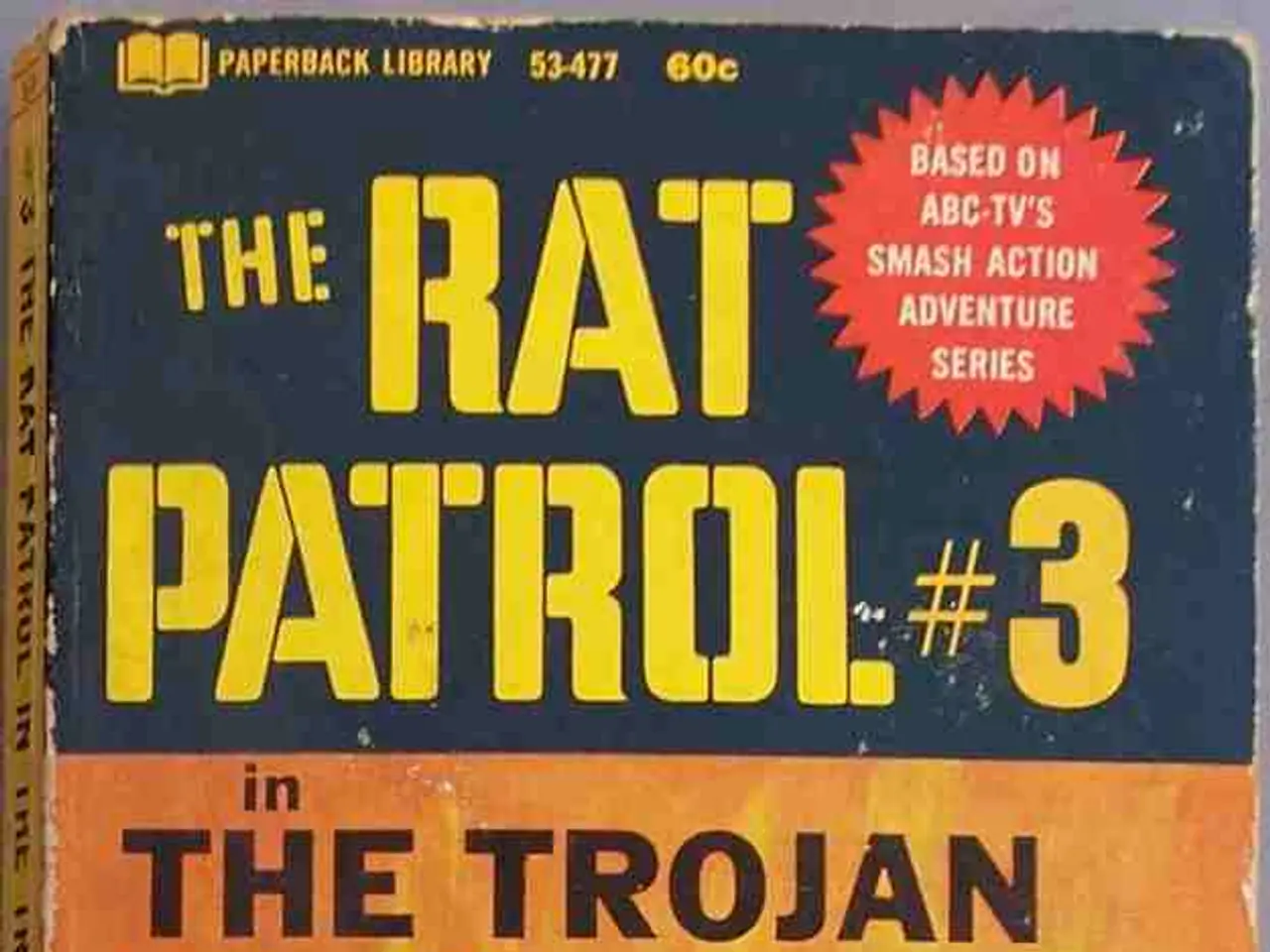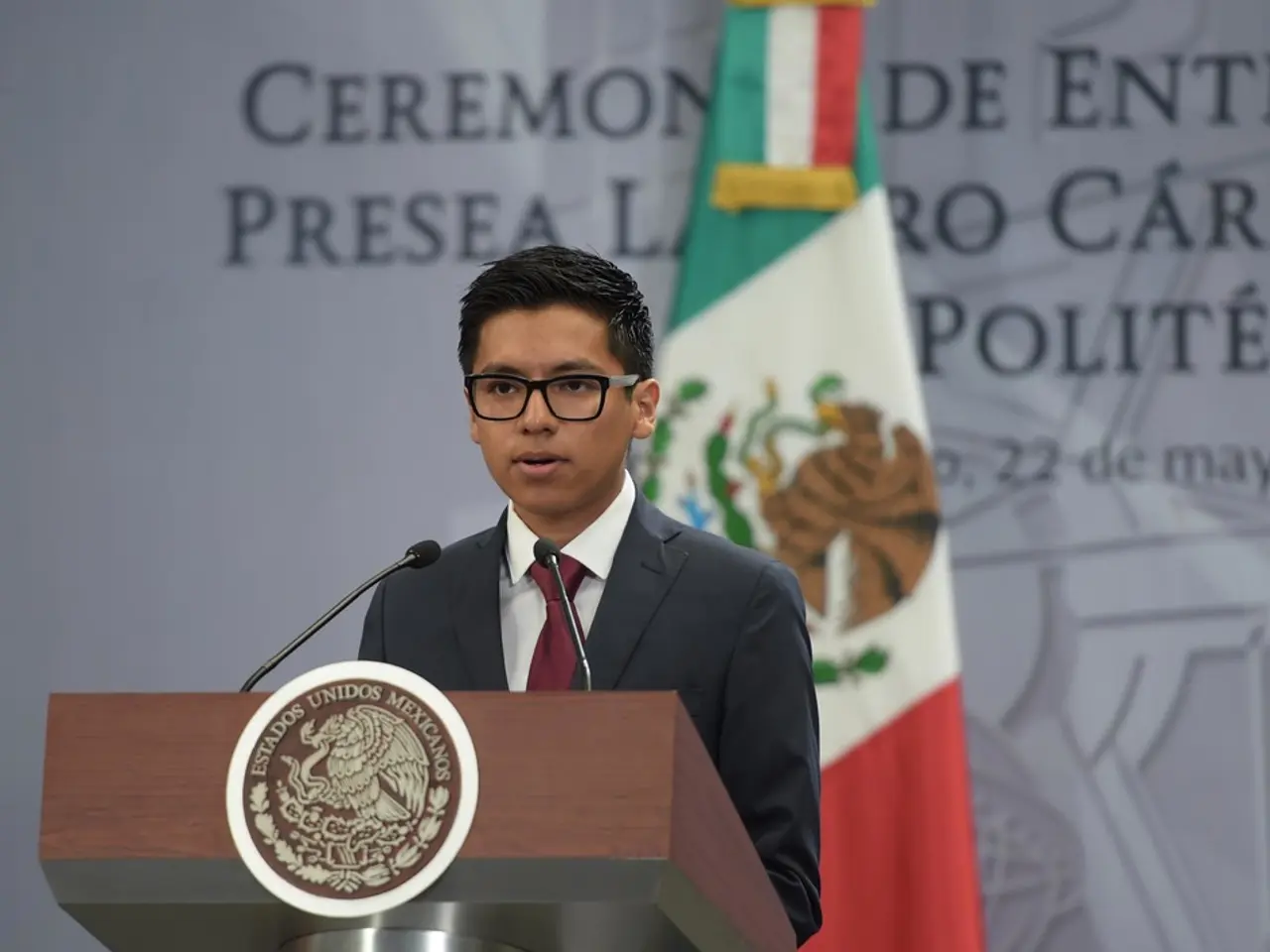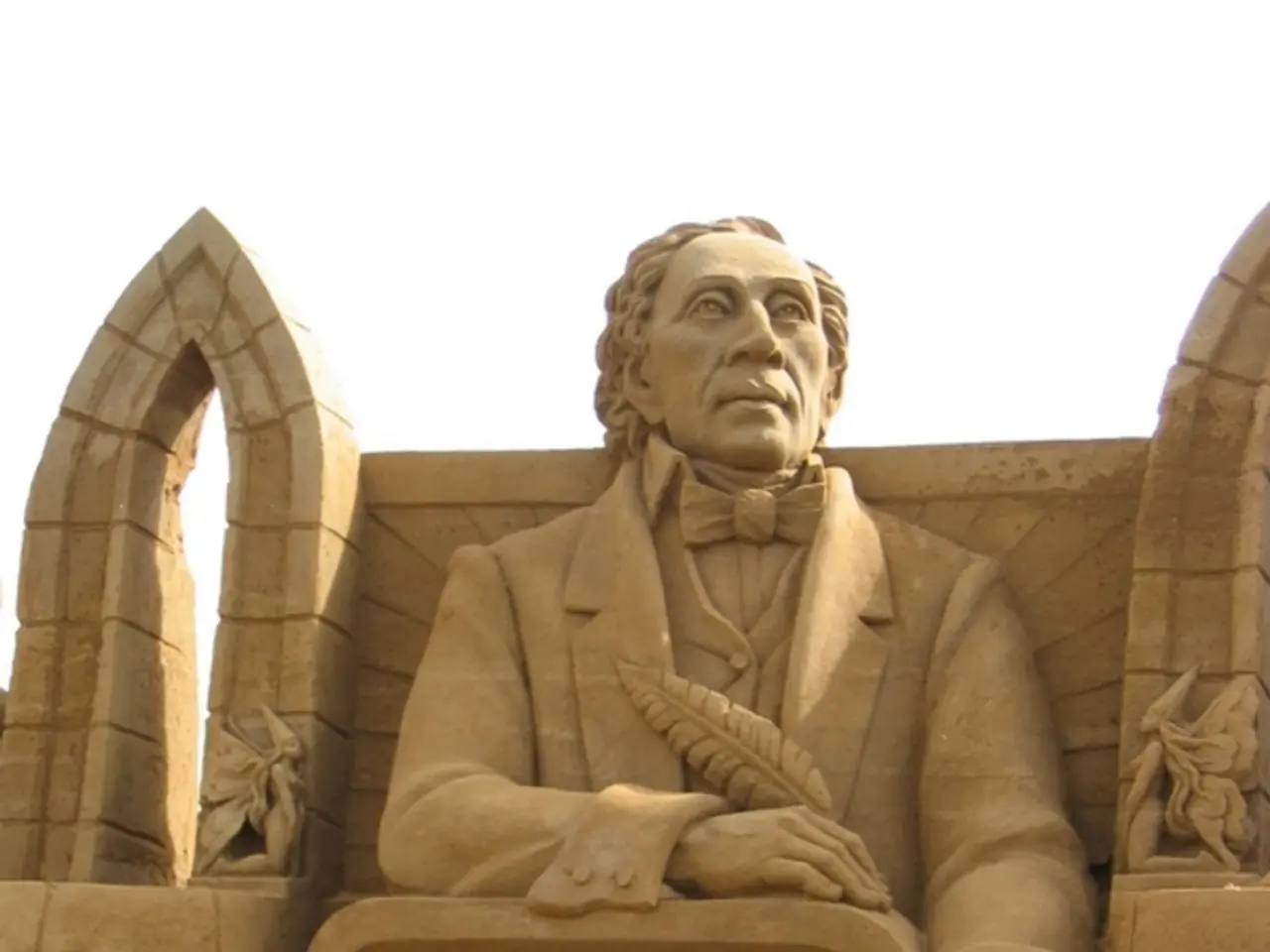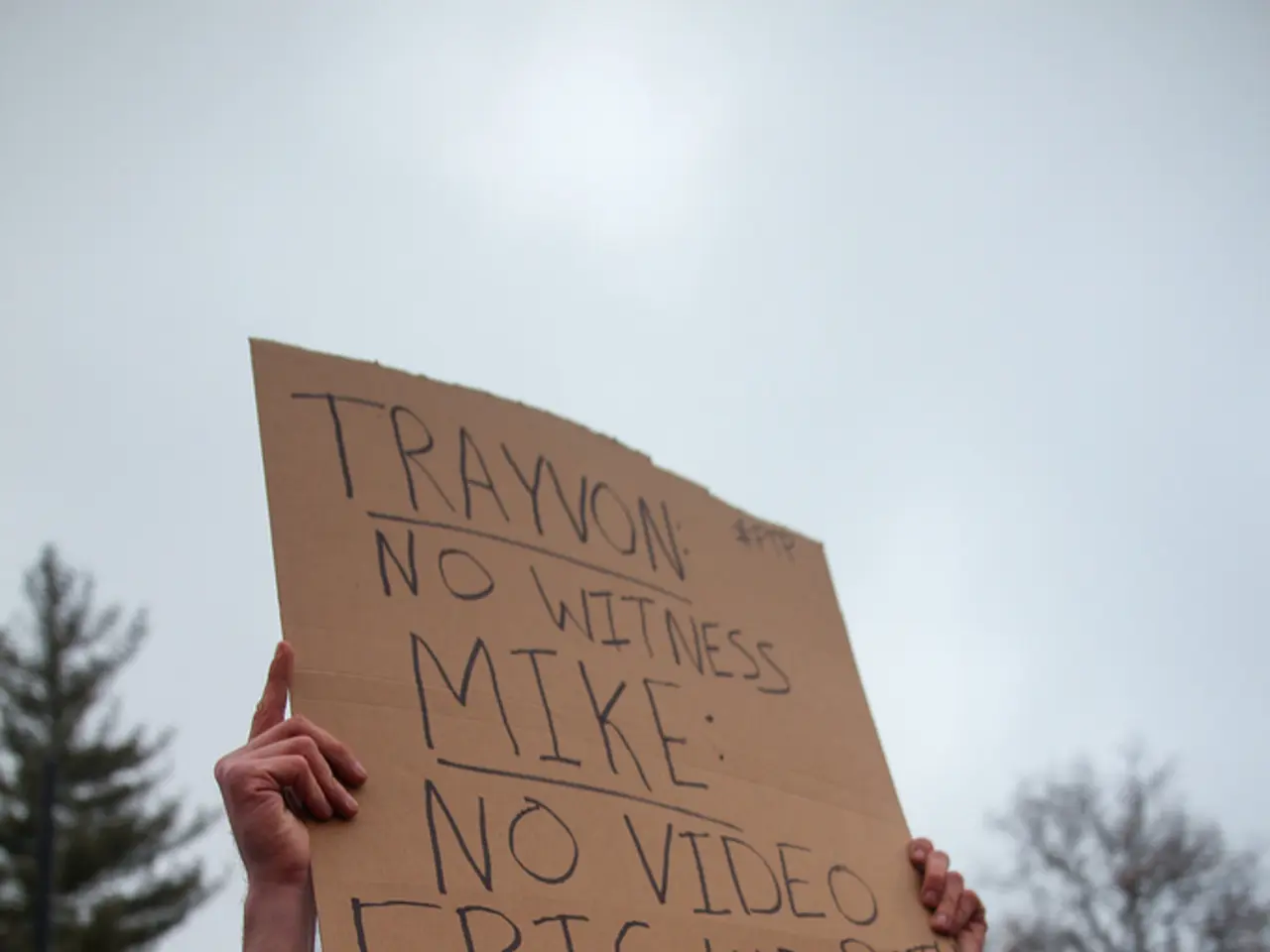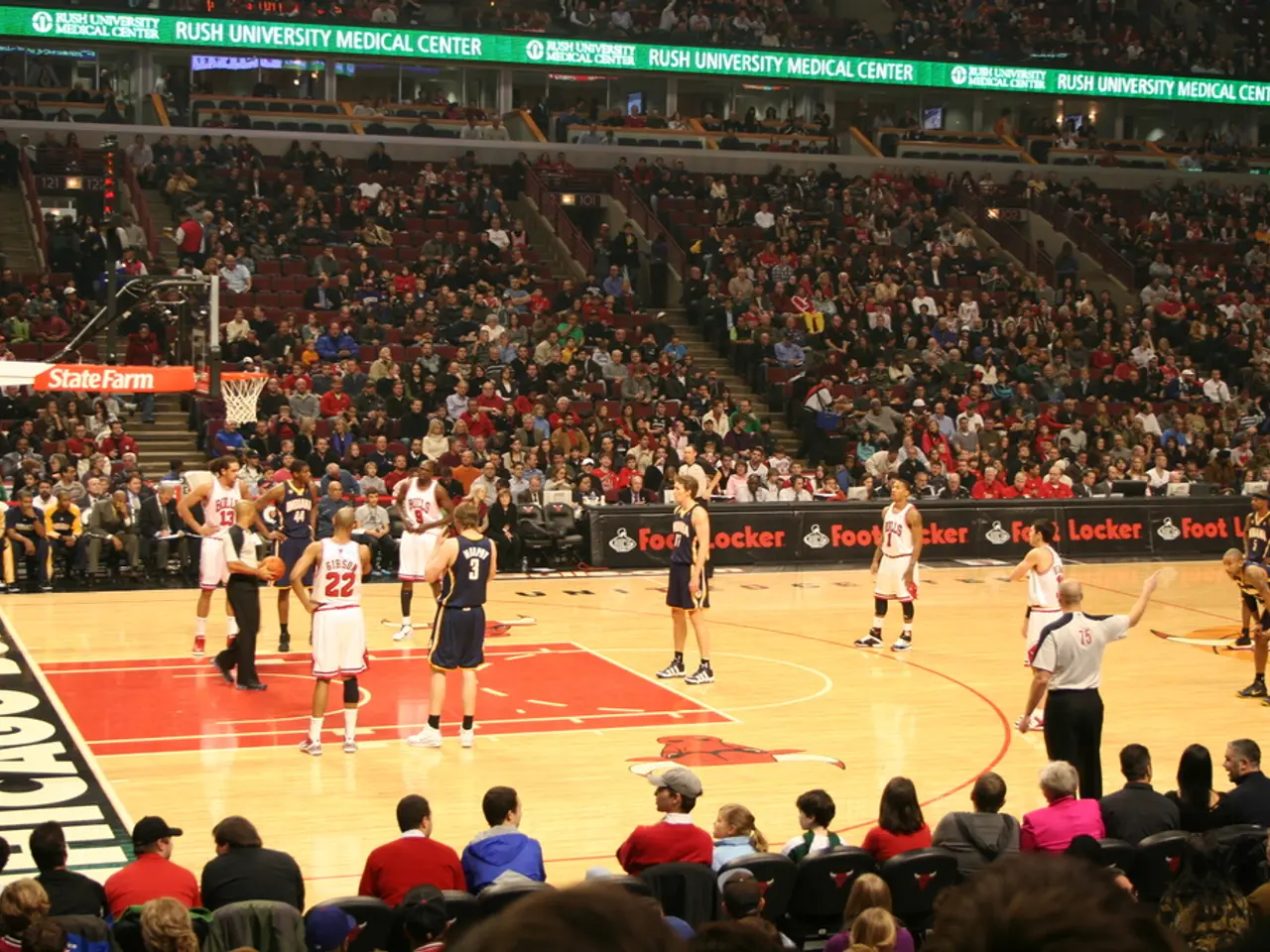Hezbollah's disarmament discussion in Lebanon intensifies
In the heart of Beirut, the cabinet convened to discuss the contentious issue of disarming Hezbollah, but the discussion was postponed until next week. The debate over Hezbollah's disarmament in Lebanon has intensified, with the political instability in the country potentially escalating if a decision is made and Hezbollah members resign in protest.
Hezbollah, once one of the most heavily armed non-state actors worldwide, has seen a diminished power and arsenal since the latest war with Israel. Despite this, the organization remains open to discussions about its arsenal, albeit refusing to commit to a concrete timeline as long as Israeli attacks in Lebanon continue and its troops are not withdrawn.
Hezbollah Secretary-General Naim Kassim reiterated the organization's stance, asserting that Lebanon will either win together or lose together in the current confrontation. The current confrontation between the US, Israel, and Hezbollah is seen as a potential trigger for Lebanon's next political crisis.
As of August 2025, Lebanon's government has formally endorsed a U.S.-backed plan to establish state exclusivity over weapon ownership, aiming to disarm Hezbollah by the end of 2025. The Lebanese Armed Forces (LAF) must submit a detailed operational plan by August 31, 2025, to implement this disarmament effort.
However, the decision has sparked significant political backlash. Hezbollah and its allies reject the proposal, viewing it as a violation of Lebanon’s sectarian power-sharing norms and the post-civil war "charter." Four Shiite Muslim ministers walked out of the cabinet meeting in protest, and Hezbollah has declared it will treat the decision as non-existent.
The potential implications for Lebanon’s political stability include the risk of governmental dysfunction, localized security tensions, strained regional relations, and challenges for the Lebanese Armed Forces. Hezbollah, with hundreds of thousands of supporters and significant influence, especially within the Shia community, could play a significant role in determining the outcome of the current political crisis in Lebanon.
The US has increased pressure on Lebanon to advance disarmament with concrete steps. Troops from the Lebanese army were deployed to prevent the display of Hezbollah flags in Beirut, while Hezbollah supporters were seen waving the organization's flags. Hezbollah refuses to do so as long as Israeli troops are stationed in Lebanon and Israel attacks targets in the country.
The success of this initiative depends on political negotiations, military feasibility, and the management of domestic and external reactions, all of which will significantly influence Lebanon's fragile political stability in the near future.
- The ongoing debate about Hezbollah's disarmament in Lebanon, which involves war-and-conflicts, politics, and general news, is surrounded by intense discussions and potential escalations, as the organization's supporters may resign in protest if a decision is made.
- Hezbollah, with its significant influence and hundreds of thousands of supporters, could play a crucial role in determining the outcome of Lebanon's current political crisis, as the organization refuses to commit to disarmament until Israeli troops are withdrawn from Lebanon and Israel ceases attacks, making it a contentious issue in the realms of war-and-conflicts and politics.
